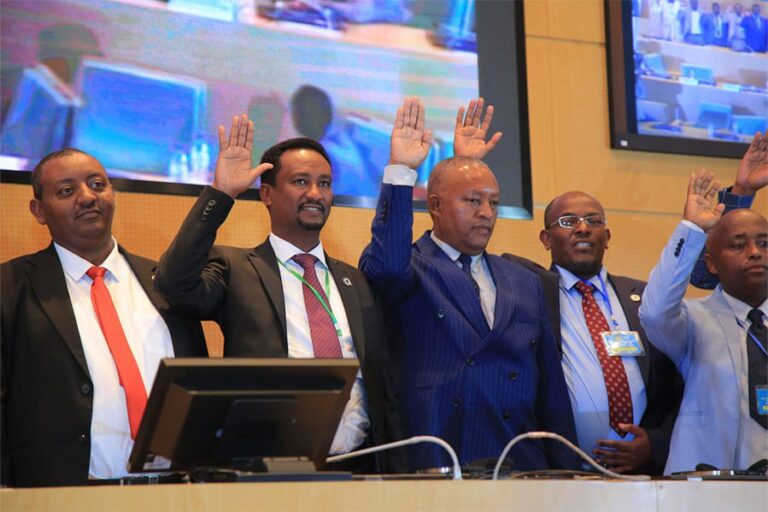The Ethiopian Investment Commission (EIC) has reported that the country’s revenue from exports in the current fiscal year has fallen significantly short of its target, indicating a continuous decline in earnings from industrial parks. Total revenue from foreign trade in operating industrial parks reached only $115.2 million, representing just 46% of the planned figure.
Currently, 13 industrial parks across the country, excluding those operated by private investors, are experiencing reduced production capacity due to limited access to international markets. Hanna Arayaselassie, the Commissioner of EIC, attributed a significant portion of this decline to Ethiopia’s exclusion from the African Growth and Opportunity Act (AGOA). She explained that many industrial parks primarily export their products to the United States, and the ban has substantially reduced their trade volume.
In the 2024 fiscal year, exports from all industrial parks amounted to $115.2 million, with Bole Lemi and Hawassa industrial parks contributing 50% of this total. Ethiopia’s suspension from AGOA, effective January 1, 2022, followed a decision by the US government. President Joe Biden’s statement on November 2, 2021, cited international human rights violations during the conflict between the Ethiopian government forces and the Tigray People’s Liberation Front (TPLF) as the reason for the suspension. The US Trade Representative (USTR) outlined conditions for lifting the trade embargo and steps for the Ethiopian government to address the humanitarian crisis sustainably.

Despite these challenges, Ethiopia managed to earn $16.41 million from industrial parks in 2022, $118 million in the fiscal year ending 2023, and $115.2 million in the fiscal year 2024. However, the EIC plans to increase industrial park exports to $153 million by 2024/25. Commissioner Hanna emphasized the country’s efforts to explore new markets and seize better free trade opportunities.
Security issues in various parts of Ethiopia have also contributed to the decline in industrial park performance. The total number of industrial parks has decreased from 22 two years ago to 18, including private investors. Only four industrial parks are currently generating export revenue, while the others are deteriorating.
Deputy Commissioner of EIC, Zeleke Temesgen, stated that the security situation in Ethiopia has not impacted investment significantly. He noted that this year’s foreign direct investment is better than previous years, even when there were no security crises. Zeleke emphasized the Commission’s focus on leveraging the country’s potential beyond the challenges and ensuring that security issues do not deter investment.
The Ethiopian Investment Commission (EIC), established in 1992, is an independent institution dedicated to attracting and encouraging private investment, particularly foreign direct investment. Supervised by a board headed by the Prime Minister, the EIC promotes the country’s investment opportunities, issues investment and business licenses, approves cooperative agreements, and facilitates business operations through various regulatory services.




